Tagged / CSHV
Join our June seminars in HSS
Centre for Wellbeing & Long-Term Health
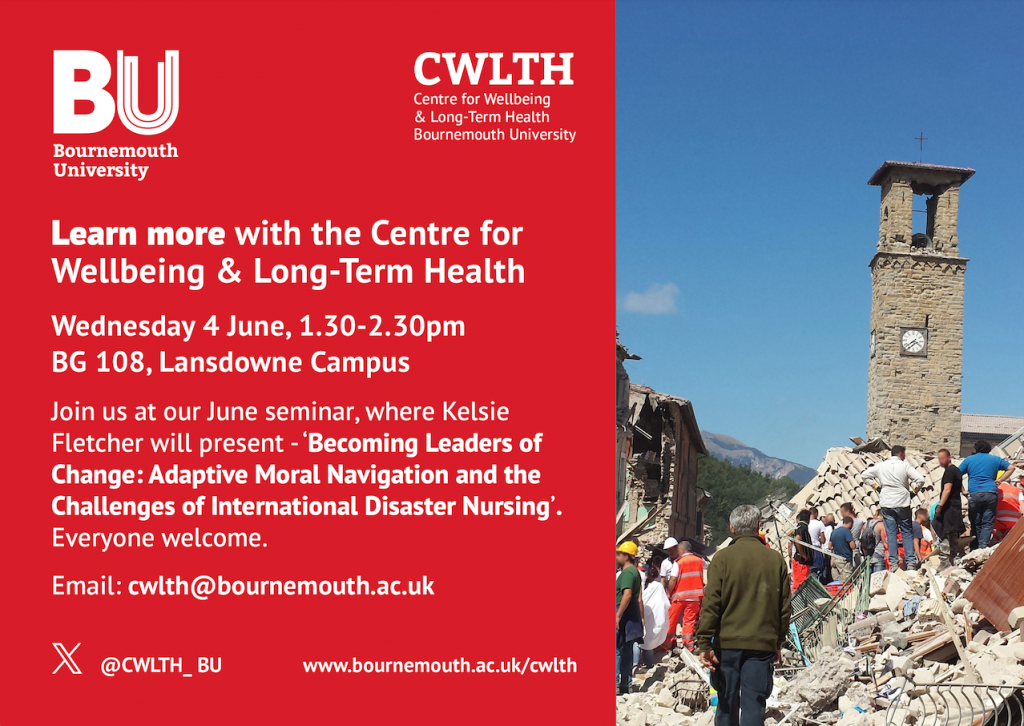
Centre for Seldom Heard Voices

Centre for Midwifery & Women’s Health
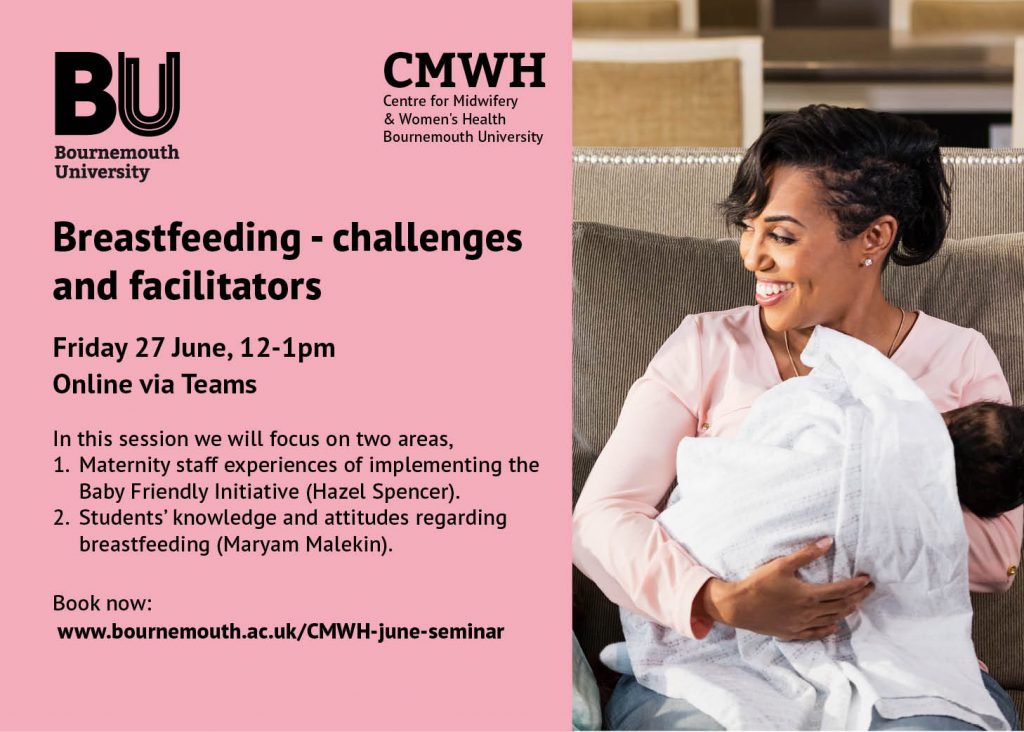
Ageing Well: What is meaningful coproduction with communities? Join our event.
Join our Ageing well event on Monday 30 June. Booking now open!
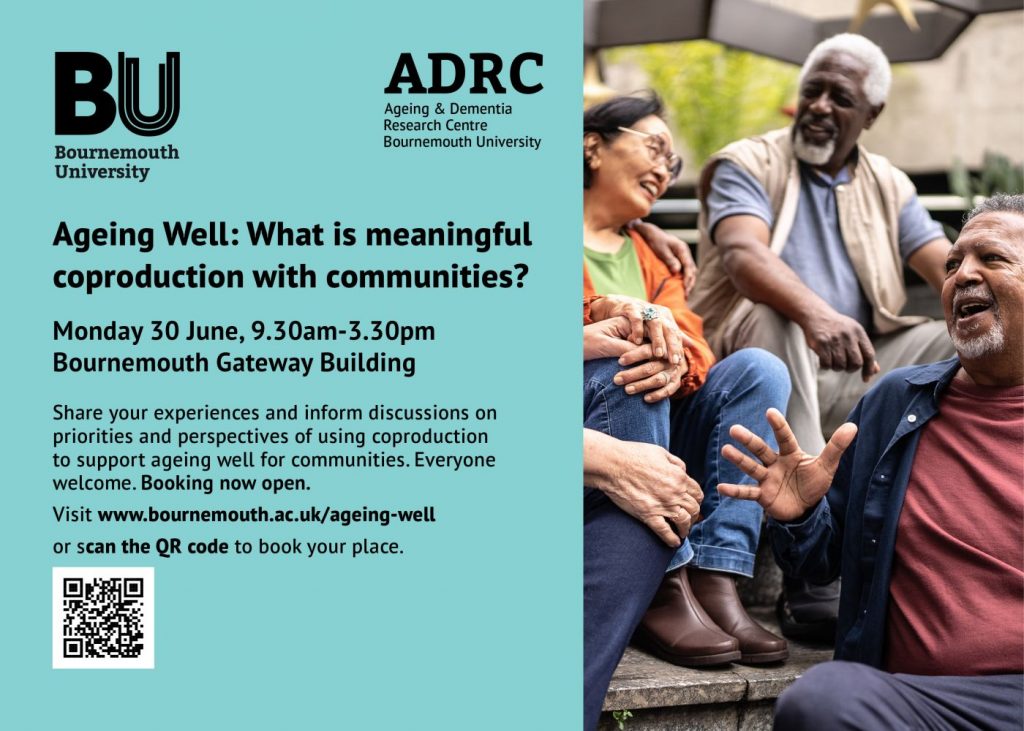
Join the HSS research seminars happening in May. Book now.


Crimmigration, Societies, Borders key note talk – Friday 16 May
Keynote talk as part of Crimmigration, Societies, Borders: Transformation of Boundaries and Narratives (British Academy event).
Prof. Ana Aliverti presents – At the heart of the state: the emotional and moral economies of migration policing in Britain.
Time: 3.30-5pm
Location: Shelley Lecture Theatre Talbot Campus
European Migration Research and Impact – Invitation to a Roundtable Discussion
Date: Wednesday, 7th May, 10am-12pm
Venue: K101 Talbot Campus
Ticket booking: European Migration Research & Impact – Invitation to Roundtable Discussion Tickets, Wed 7 May 2025 at 10:00 | Eventbrite
As part of our recently awarded, British Council-funded “Springboard” project, titled ‘Between vulnerability and resilience: gendering anti-migrant nationalism and migrant responses’, we would like to invite colleagues and PGRs from across BU and AUB with related research interest to a Roundtable discussion on European Migration Research & Impact on 7th May, from 10am to 12pm.
The panel will feature European and BU colleagues actively involved in researching migration across the continent and in the UK, bringing together both internal and international, cross-disciplinary expertise and experience of how to build impact into their projects from scratch. It will also benefit from specialised RDS/REF insights on building research impact. We plan to critically explore different types of potential impact, how to develop impactful research, and discuss both opportunities as well as limitations in achieving meaningful impact through migration research. We hope this panel will aid, inform, and inspire both early and advanced academics interested in migration research, including and beyond Europe, and we welcome lively contributions and discussions. The event will also provide an opportunity for academics across disciplines, working on or interested in related topics, to network with colleagues within and beyond the university.
The Springboard grant awarded by the British Council aims at deepening, specifically, German-UK academic collaborations and developing research projects together. The project is led by Stephanie Schwandner-Sievers (PI), Dilvin Dilara Usta and Anna Wimbledon (Co-Is), all of BU’s Centre for Seldom Heard Voices (CSHV). Beyond British Council funding, project development has kindly been supported by BU’s Global Engagement, RDS, and the FHSS faculty teams as well as the CSHV. Our current international partners include (international lead team only) Carolin Leutloff-Grandits from the B/Orders in Motion research centre at the European University Viadrina (EUV), Frankfurt (Oder), Germany; our long-term partner Linda Gusia of the Sociology Institute and Gender Studies Programme of the University of Prishtina, Kosovo; and Emma Shercliff of the Arts University Bournemouth.
This international team, including further senior researchers, ECRs and PGRs from all the involved partners, is coming together in early May for a dedicated workshop to develop its collaborations, links, and future project plans. (To avoid confusion: the Springboard project and workshop is both complementary to and separate from, Dilvin’s and Anna’s current British Academy-funded project on Crimmigration, which runs in parallel and aims at building collaborative networks, specifically, amongst UK-ECRs and with local non-academic partners; see recent announcement for this associated event, taking place on 16th May).
International Springboard team members Carolin Leutloff-Grandits, co-editor of Migrating Borders and Moving Times (2017) and author of Translocal Care Across Kosovo’s Borders; and Dr Marija Grujić, currently co-leading a project on Gendering asylum infrastructures in Germany and the UK, both of the B/Orders in Motion research centre at EUV, Frankfurt (Oder), Germany, have kindly agreed to speak on the European Migration Research & Impact roundtable. Furthermore, we are delighted to welcome Dr Ingrida Kerusauskaite-Palmer of the Lithuanian Centre for Social Sciences (Institute of Law), Vilnius, on the panel, who recently completed policy-relevant research on the local, societal impact of Ukrainian migration to Central Europe, and who also is a Visiting Fellow at FHSS. Finally, we are particularly pleased to confirm attendance of BU academics and migration experts, Alina Dolea (who has studied and advised on Romanian migrations) and Nicola De Martini Ugolotti (who has worked with migrants, refugees and asylum seekers in Italy and the UK), as well as of RDS impact manager, Amanda Edwards, as panellists. Stephanie Schwandner-Sievers will chair the panel discussion who, herself, has a long history in studying, specifically, Albanian migrations and societal responses.
Join the four research seminars happening in FHSS in March

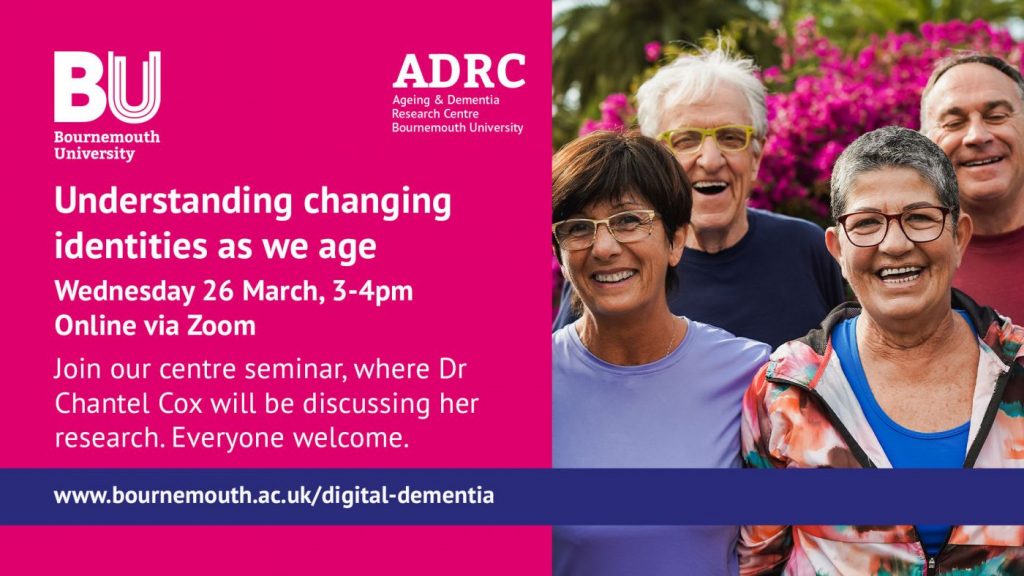


Emotions, identity, belonging: UK Romanian diaspora
Join our seminar on Wednesday 26 February. Sign up for free https://www.bournemouth.ac.uk/CSHV-seminars

A research event: “How do we improve secure care? Exploring international perspectives and learning from practice.”
On October 7th, 2024, professionals, researchers, and stakeholders gathered at The Social Hub in Glasgow for an event titled, “How do we improve secure care? Exploring international perspectives and learning from practice.“ This event was funded by the Faculty of Health and Social Sciences at Bournemouth University (BU) and represents an example of the use of faculty funding to support positive and impactful research. It was organised by staff from the Research Centre for Seldom Heard Voices at BU – Dr Stefan Kleipoedszus and Dr Caroline Andow – in collaboration with colleagues from the Children and Young People’s Centre for Justice (CYCJ) in Scotland – particularly Donna McEwan – along with Dan Johnson, Forensic Psychologist and Clinical Director at Kibble Education and Care Centre Scotland, and our international partners Caroline Vink (Netherlands Youth Insitute) and Dr Kate Crowe (Honorary Fellow at the University of Melbourne).
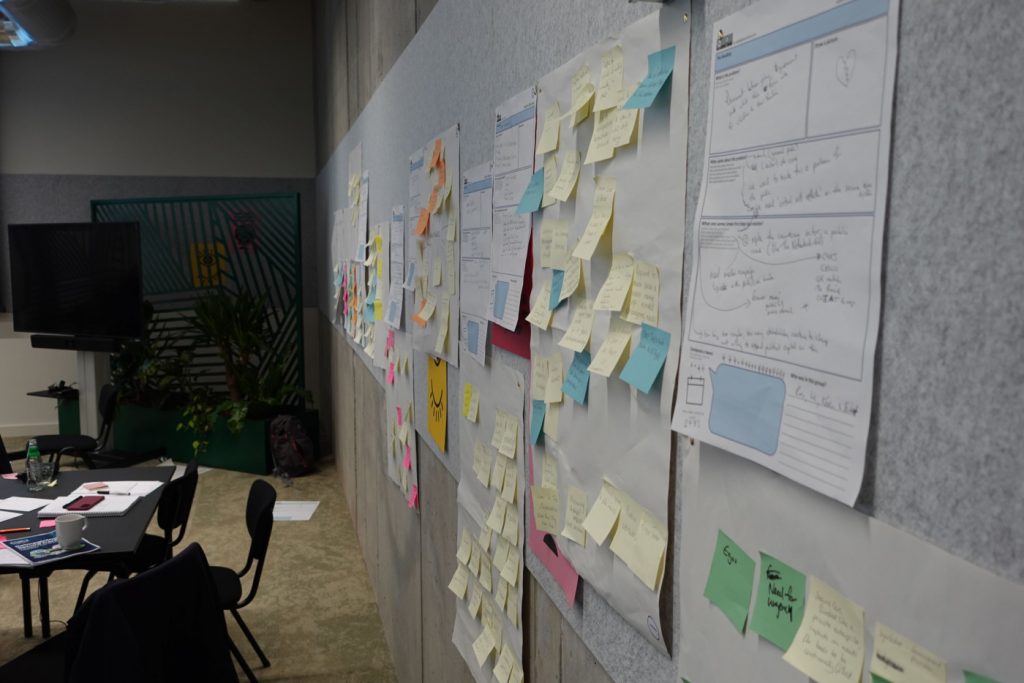
The event was designed to explore critical questions in developing secure care for children, offering national and global perspectives. Secure care, in its traditional form, is locked institutional care for children aged 10 to 17. Children can enter secure care either on criminal justice grounds, when aspects of their behaviour are considered to pose a risk of harm to others, or on welfare grounds, when the risk of harm is to themselves, though there is often an overlap. Our workshop aimed to explore how the continuum of services, including secure care could evolve to better meet the needs of the children, and young people who may require such responses and often come from challenging backgrounds, with experiences of childhood trauma and poly-victimisation. The event’s target audience included practitioners, managers, and stakeholders who are involved with secure care for children.
To start with the most important bit, the food at the venue – which itself was very cool – was incredible. The day started with freshly baked pastries, followed by cakes mid-morning, a delicious grazing platter for lunch (with some accidental haggis consumption by one member of our party!), and an unexpected, yet very much enjoyed, basket of pittas, olives and homemade houmous in the afternoon. If nothing else, our attendees went home full, but we have a feeling they took away much more than satisfied taste buds.
Kicking off the day, three experts provided insightful presentations to secure care in their respective jurisdictions. First, Donna McEwan and Dan Johnson presented the recently released CYCJ ‘Re-Imagining Secure Care’ report. Donna detailed key questions that need to be asked when we think about what the future of secure care could look like, including:
- How do we hold the risk of harm in the community?
- How do we deprive liberty for the least possible time with minimal intervention?
- How do we group children together (for example in terms of harmed/risk of harm, and different gender identities?
The second presentation, by Eva Mulder (Professor by Special Appointment at the University of Amsterdam), was particularly impressive as Eva and her colleagues had spent the night standing on the street following a fire alarm at their hotel, and Eva had not had any sleep. Hats off to Eva! Eva described her research exploring how secure institutions can be made to look and feel like home, using young people’s photographs of home. It was interesting to hear how ‘home’ was conceptualised in terms of feelings – for example, home is somewhere where there are people you know, you feel like you belong, you can be alone when you want to be, there is food that you like, and you feel free. Eva encouraged us to contrast these ideas with how institutional buildings make children feel. Eva described new small-scale residences for children in the Netherlands, without locked doors, where there is continuity with a small team of staff and integration with the community. Research in these places revealed that staff feel that they can develop better relationships with the young people, and the young people want to make more of an effort with the staff and their treatment, and parents feel more included. Eva ended by describing how there is a campaign in the Netherlands to end secure care completely, and how this requires a solution within the community that can keep children safe.
Last, but by no means least, Dr Kate Crowe took to the stage. Kate was awarded a Churchill Fellowship in 2022 to investigate alternatives to secure care in Hawaii, Canada, Scotland and the Netherlands. In 2023 she was awarded a Creswick Fellowship and she travelled to Iceland, Finland and Scotland to investigate the position and design of secure care in light of Australian jurisdictions raising the minimum age of criminal responsibility (MACR). Kate prompted the audience to consider how models of secure care might need to change as the MACR increases. She also posed the perennial question in this area – should children on welfare placements be placed alongside children deprived of their liberty on criminal justice grounds? Along with other details from her travels, the audience were very intrigued to find out from Kate that all secure facilities in Finland have saunas!
With these thought-provoking presentations in mind, participants were divided into six focus groups. Discussions between the group members were audio recorded so that they could be captured as research data. Participants explored critical questions, such as:
- How can we best meet the needs of children who meet the criteria for secure care?
- What are the key challenges to reforming secure care systems?
- What solutions can be developed to address these challenges using solution sketchpads?
At the end, participants explored three core questions that aim to lead to calls for action in the participant’s respective spheres of influence:
- What can be done now in secure care?
- What can be done now in the community?
- What can be done at the interface between secure care and community services?
Several preliminary findings emerged from the discussions:
- There is strong interest in reshaping secure care for children, with innovative ideas around embedding secure care within local communities.
- Greater collaboration is needed between secure care providers and other agencies to ensure holistic care for children.
- For practical application, the need to embed mental health professionals, such as psychologists and education support staff, more deeply within secure children’s homes is a critical step forward.
This event was about exchanging information, but it also aimed at suggesting meaningful options for further development. The participants shared creative ideas, and the discussions showed a willingness to push for progress to improve care for arguably the most vulnerable children in out-of-home care.
One of the most interesting ideas was to embed secure care services more closely in local communities. This would promote closer cooperation among providers, mental health services, and educational support systems.
At the end of the event, it became clear that this seminar was a stepping stone towards future progressive developments in secure care. Participants identified critical areas for immediate action, both within secure care settings and in the broader community and at the intersection between these two worlds. This is crucial for building a system that protects children and communities and supports their long-term rehabilitation and reintegration.
This workshop was a success because it allowed participants to share knowledge, discuss challenges, and develop actionable solutions for the future of secure care. It is an essential reminder of how far we have come—and how much further we want and need to go—to ensure that secure care can continue to meet the needs of children and young people who meet the criteria for secure care. This event provided an excellent opportunity to reflect on the challenges in secure care and consider future development options.
This event also acts as a reminder of how much can be achieved when a group of like-minded people with a common goal come together. We feel privileged to be working with our national and international partners, and we look forward to our next event, wherever in the world that might be. Our thanks go out to our Faculty at Bournemouth University who funded this event.

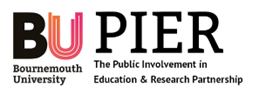













 REF Code of Practice consultation is open!
REF Code of Practice consultation is open! BU Leads AI-Driven Work Package in EU Horizon SUSHEAS Project
BU Leads AI-Driven Work Package in EU Horizon SUSHEAS Project Evidence Synthesis Centre open at Kathmandu University
Evidence Synthesis Centre open at Kathmandu University Expand Your Impact: Collaboration and Networking Workshops for Researchers
Expand Your Impact: Collaboration and Networking Workshops for Researchers ECR Funding Open Call: Research Culture & Community Grant – Apply now
ECR Funding Open Call: Research Culture & Community Grant – Apply now ECR Funding Open Call: Research Culture & Community Grant – Application Deadline Friday 12 December
ECR Funding Open Call: Research Culture & Community Grant – Application Deadline Friday 12 December MSCA Postdoctoral Fellowships 2025 Call
MSCA Postdoctoral Fellowships 2025 Call ERC Advanced Grant 2025 Webinar
ERC Advanced Grant 2025 Webinar Update on UKRO services
Update on UKRO services European research project exploring use of ‘virtual twins’ to better manage metabolic associated fatty liver disease
European research project exploring use of ‘virtual twins’ to better manage metabolic associated fatty liver disease